Investing in wine: buying en primeur
Harry Eyres looks at the en primeur market and finds that there might be light at the bottom of the barrel.
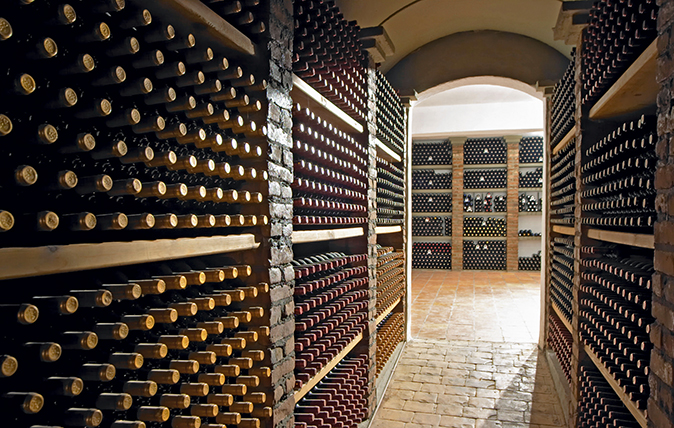

The massed ranks of the British wine trade and a handful of journalists descended on Bordeaux for a few days in early April to taste barrel samples of the 2015 vintage. It had been heavily hyped (not an unusual phenomenon) and does indeed look like a very promising vintage, the best since 2009 and 2010, but enthusiasm for the en primeur market—offering for sale, supposedly at a discount, wines that are still in barrel, before bottling and shipping—has rarely been more mute‘d among both trade and press.
The pre-eminent American wine expert Robert Parker has even declared, in The Drinks Business magazine, that the en primeur market is ‘largely dead’. Chadwick Delaney of Justerini and Brooks (020–7493 6174; www.justerinis.com) is more sanguine: ‘The Bordelais can use this vintage to bring people back to Bordeaux—if they price it right. There needs to be a reason to buy en primeur for drinking, not speculation. The style of the vintage is very sexy and customers will love it.’
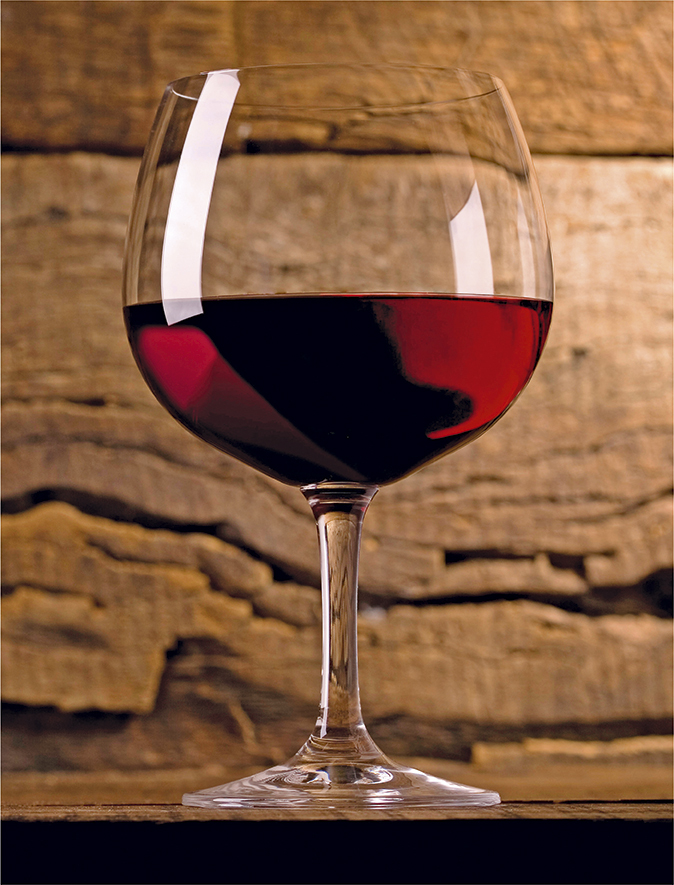
En primeur
has always carried both a tempting promise and a number of risks. The promise, especially in the early days, was that, if you were clever, you could drink excellent claret for free. Buy two cases of, say, Château La Rêve Dorée (I’ve made up the name) en primeur, wait for the value to appreciate, as it inevitably would (or so you were told), then sell one off and the profit would cover the cost of the other one.
This did sometimes work—at least for certain vintages. Among recent Bordeaux vintages, 2004 and 2008 (priced very low because of the financial crisis) are two that buyers would have done well to buy en primeur. Counter-intuitively, it’s usually not the most acclaimed vintages that perform most strongly. ‘Often, it’s been best to buy the vintage before a very good and trumpeted one,’ says Charles Lea of Lea & Sandeman (020–7244 0522; www.leaandsandeman.co.uk).
The problem is that, in recent years, the initial price has been set too high and it’s extremely galling to find you paid £300 a case for your Rêve Dorée 2011, locking up your money for three years, then look in a merchant’s catalogue—Farr Vintners (020–7821 2000; www.farrvintners.com), for example—three years later and seeing the same wine being offered at a substantially lower price.
Unfortunately, that’s not the only risk. Another even more serious, although more remote one is that the company that sold you the wine goes bust in the meantime and you never see your Rêve Dorée at all. This happened in the 1990s with the Hungerford Wine Company, Nigel Baring & Co and others. Other risks are that the wine doesn’t taste as good when bottled as it did in cask or doesn’t develop in the way that was promised. Young Bordeaux is notoriously difficult to taste and judge.
Sign up for the Country Life Newsletter
Exquisite houses, the beauty of Nature, and how to get the most from your life, straight to your inbox.
The first principle when considering buying Bordeaux en primeur is simply to buy only wines that are delicious and that you would be very happy to drink, whatever happens to the price. A second principle is to concentrate on châteaux that have a record of fair pricing combined with excellent and consistent quality. High on this list would come the two St Julien crus classés owned by Anthony Barton, Châteaux Léoville and Langoa-Barton.
Bordeaux isn’t the only en primeur market, although it’s historically the most important one. Increasingly, Burgundy en primeur is looking a better bet than Bordeaux. This is a more recent market than the Bordeaux one and deals in much smaller quantities; the overall production of Burgundy is a fraction of Bordeaux and individual wines are made in quantities of a few hundred cases rather than several thousand (production at Lafite is about 300,000 bottles a year).
This can be an argument in favour of buying Burgundy en primeur. ‘The first reason to buy anything en primeur,’ says Mr Lea, ‘is that you simply won’t be able to get hold of it in the future.’ This is true of some of the finest Burgundies, especially the grands crus, but much less true of Bordeaux.
‘The second reason,’ Mr Lea continues, ‘is that this is the cheapest time to buy Burgundy.’ A good number of 2014 Burgundies are still available en primeur from merchants such as Lea & Sandeman, Justerini & Brooks and Berry Bros (0800 280 2400; www.bbr.com). This was a wonderful vintage for whites (Chablis was outstanding), which are seductive and have a perfect balance of ripeness and freshness, and a good—possibly very good—one for reds.
Now, we await the 2015 Bordeaux en primeur campaign. Will the châteaux keep prices steady and entice back the rather large number of customers who have strayed away from Bordeaux in the past four or five years? History doesn’t suggest a positive answer, but trends can always be bucked.
A Port in a storm
Speaking of bucking trends, laying down Port may sound decidedly last century, but vintage Port, the longest-lived of great wines, is better made and better value than ever and underpriced compared to top claret or burgundy. The last two generally declared vintages, 2007 and 2011, were among the most aromatically intense and beautiful ever seen in the Douro. Do buy a case or two of Graham, Taylor, Fonseca, Warre or Niepoort for your children, grandchildren or godchildren—or even for yourself, if you think you’ll still be around in 2035.
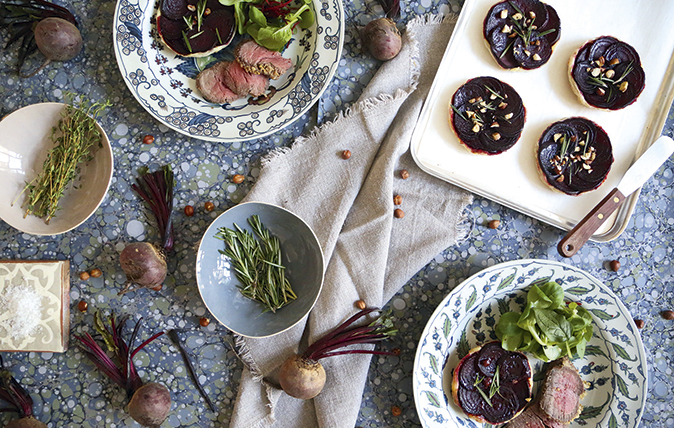
Beetroot, rosemary and balsamic tarte tatin, with Parmesan, herb-and-crumb-crusted fillet of beef and red-wine jus
Beetroot is a hugely versatile ingredient, says our kichen garden cook.
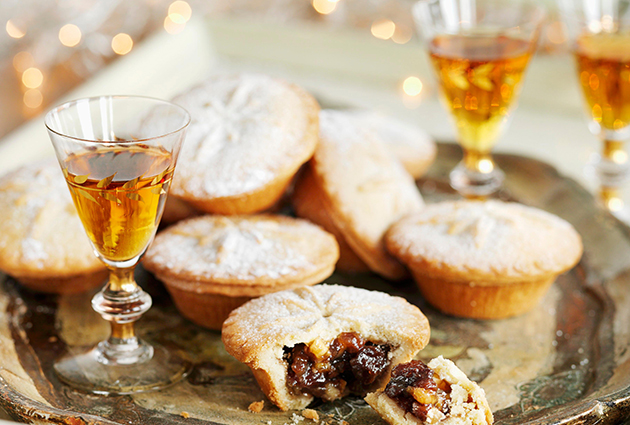
Exquisite pudding wines to try
Still quite unfashionable, dessert or pudding wine is actually superior in many ways to the more en vogue dry wines
Country Life is unlike any other magazine: the only glossy weekly on the newsstand and the only magazine that has been guest-edited by HRH The King not once, but twice. It is a celebration of modern rural life and all its diverse joys and pleasures — that was first published in Queen Victoria's Diamond Jubilee year. Our eclectic mixture of witty and informative content — from the most up-to-date property news and commentary and a coveted glimpse inside some of the UK's best houses and gardens, to gardening, the arts and interior design, written by experts in their field — still cannot be found in print or online, anywhere else.
-
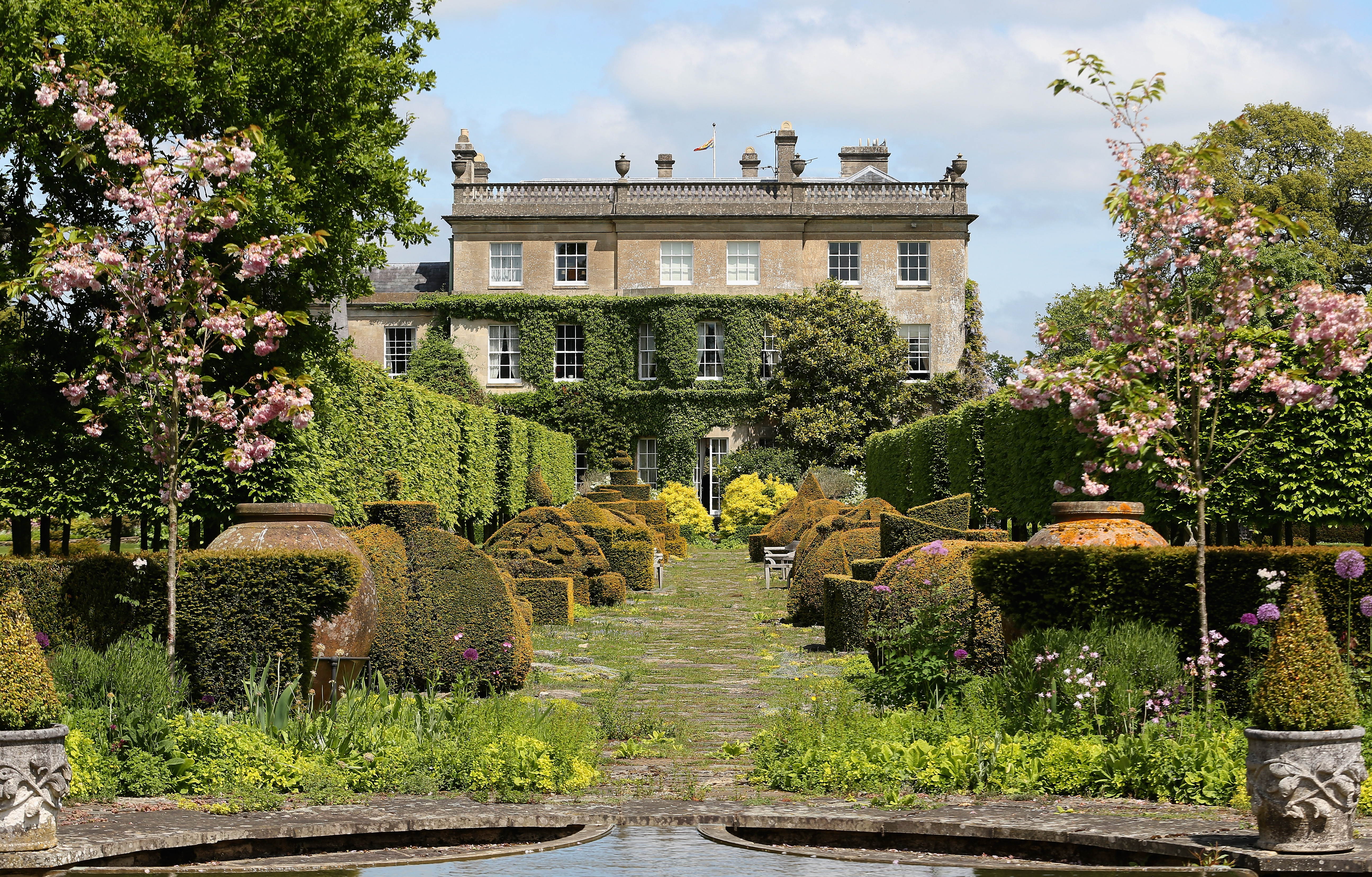 Sanderson's new collection is inspired by The King's pride and joy — his Gloucestershire garden
Sanderson's new collection is inspired by The King's pride and joy — his Gloucestershire gardenDesigners from Sanderson have immersed themselves in The King's garden at Highgrove to create a new collection of fabric and wallpaper which celebrates his long-standing dedication to Nature and biodiversity.
By Arabella Youens
-
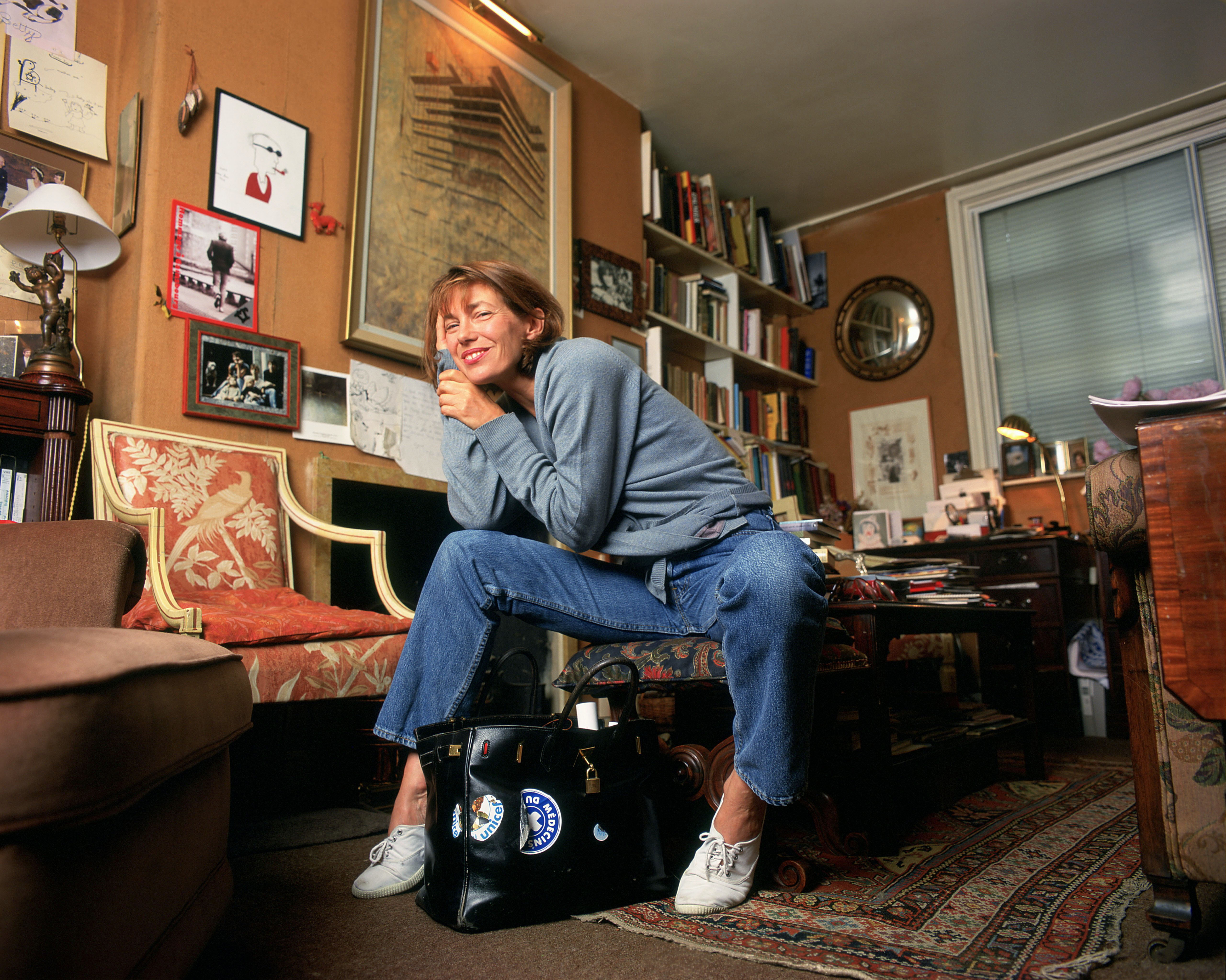 The coveted Hermès Birkin bag is a safer investment than gold — and several rare editions are being auctioned off by Christie’s
The coveted Hermès Birkin bag is a safer investment than gold — and several rare editions are being auctioned off by Christie’sThere are only 200,000 Birkin bags in circulation which has helped push prices of second-hand ones up.
By Lotte Brundle
-
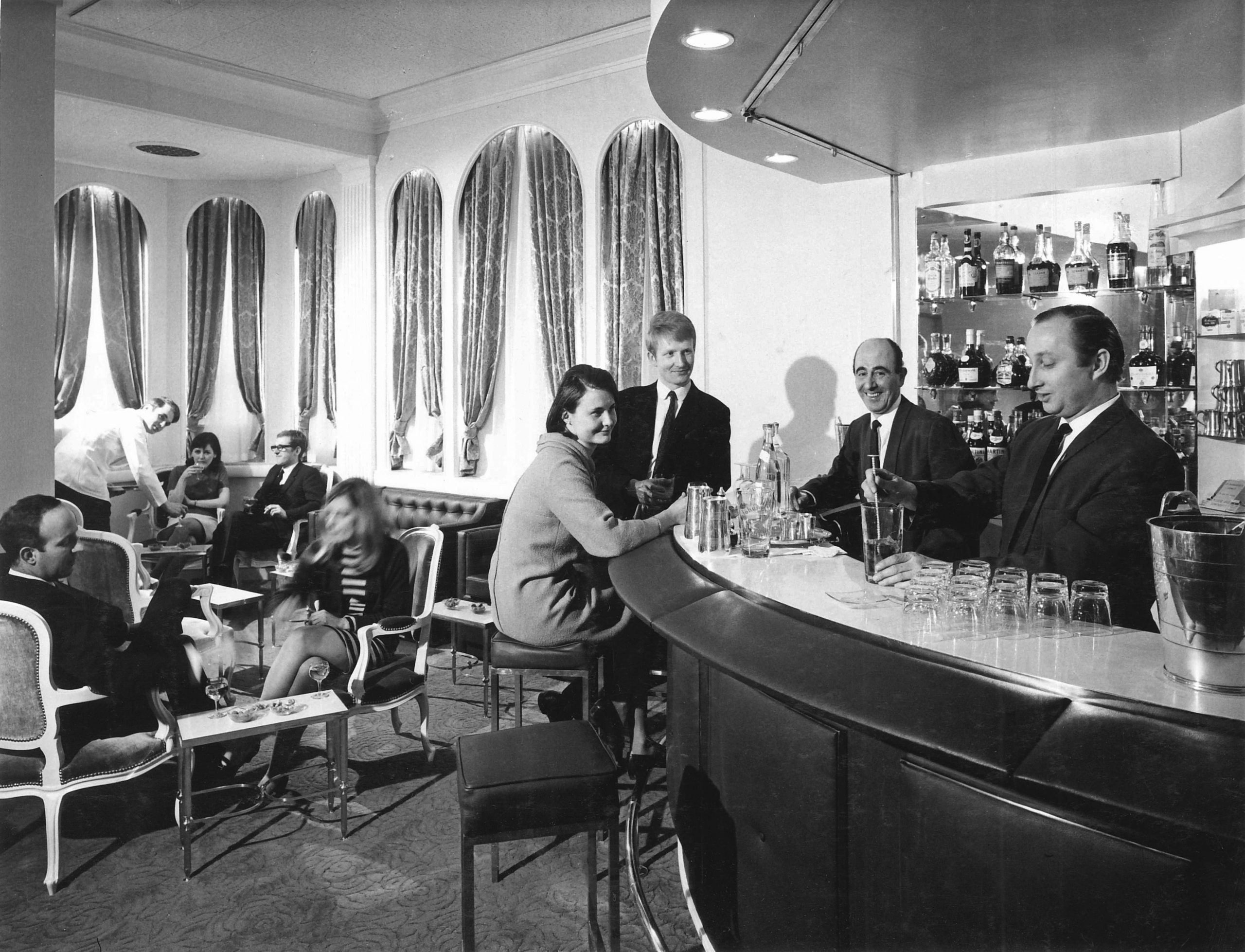 The iconic American bars in London perfect for lifting a Thanksgiving cocktail
The iconic American bars in London perfect for lifting a Thanksgiving cocktailGlamorous American bars were once a familiar sight in London, catering to US and British citizens alike, but only two of the historic ones remain. On the eve of Thanksgiving, Robert Crossan goes in search of both.
By Rob Crossan
-
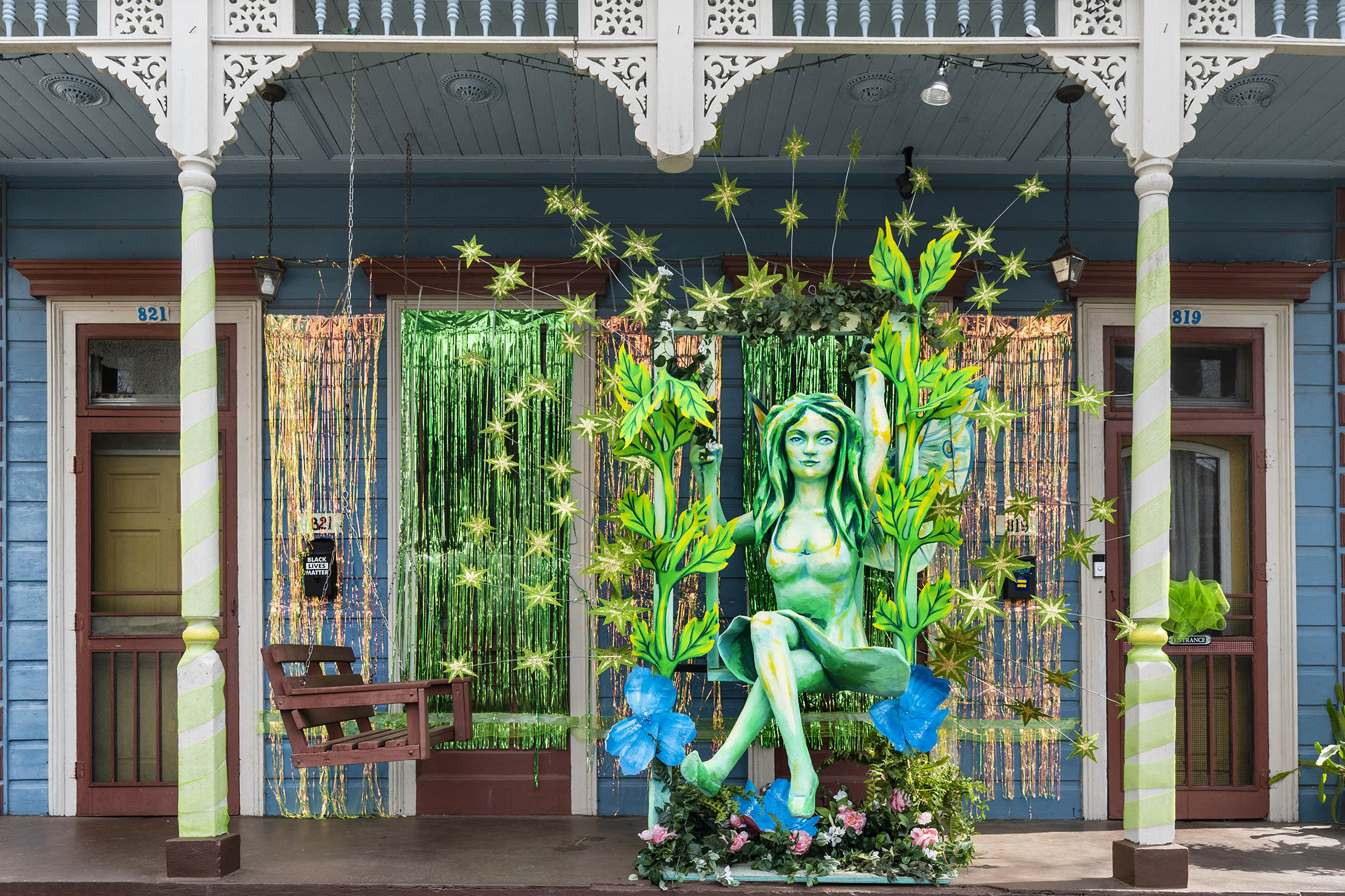 Curious Questions: Why was absinthe banned?
Curious Questions: Why was absinthe banned?Absinthe is almost unique among alcoholic spirits for having been outlawed in even some of the world's most liberal countries — but how did that happen? Martin Fone traces back the story to find the tales of debauchery, hallucination and even murder that once gave the drink its bad name — and looks at how it's returned to prominence.
By Martin Fone
-
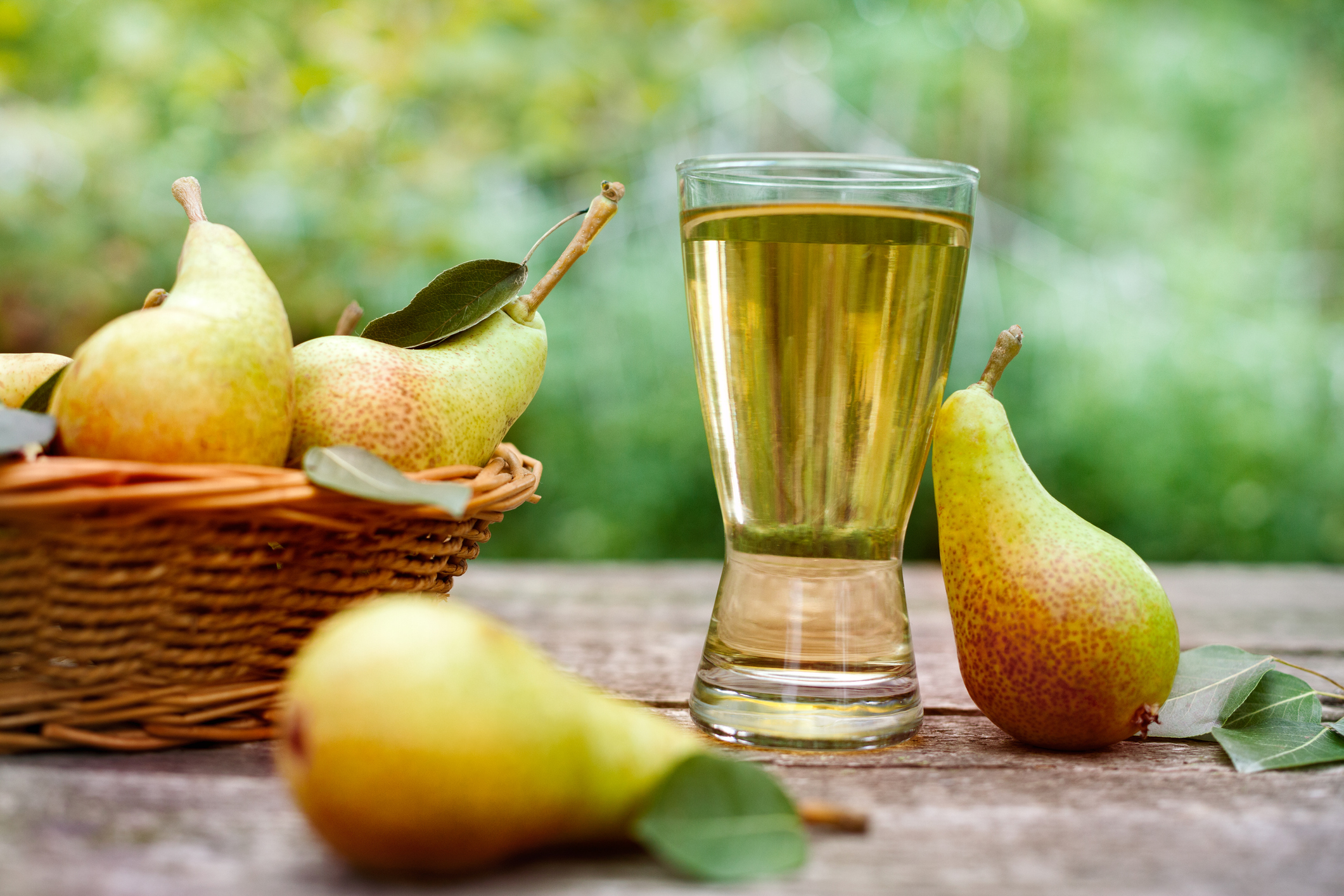 Perry: The pear cider dubbed 'the English champagne' that's been an English passion for centuries
Perry: The pear cider dubbed 'the English champagne' that's been an English passion for centuriesNot to be confused with cider, the art of perry-making is more than a craft — it’s an English passion. Ben Lerwill meets some of our best producers of fermented pear juice.
By Ben Lerwill
-
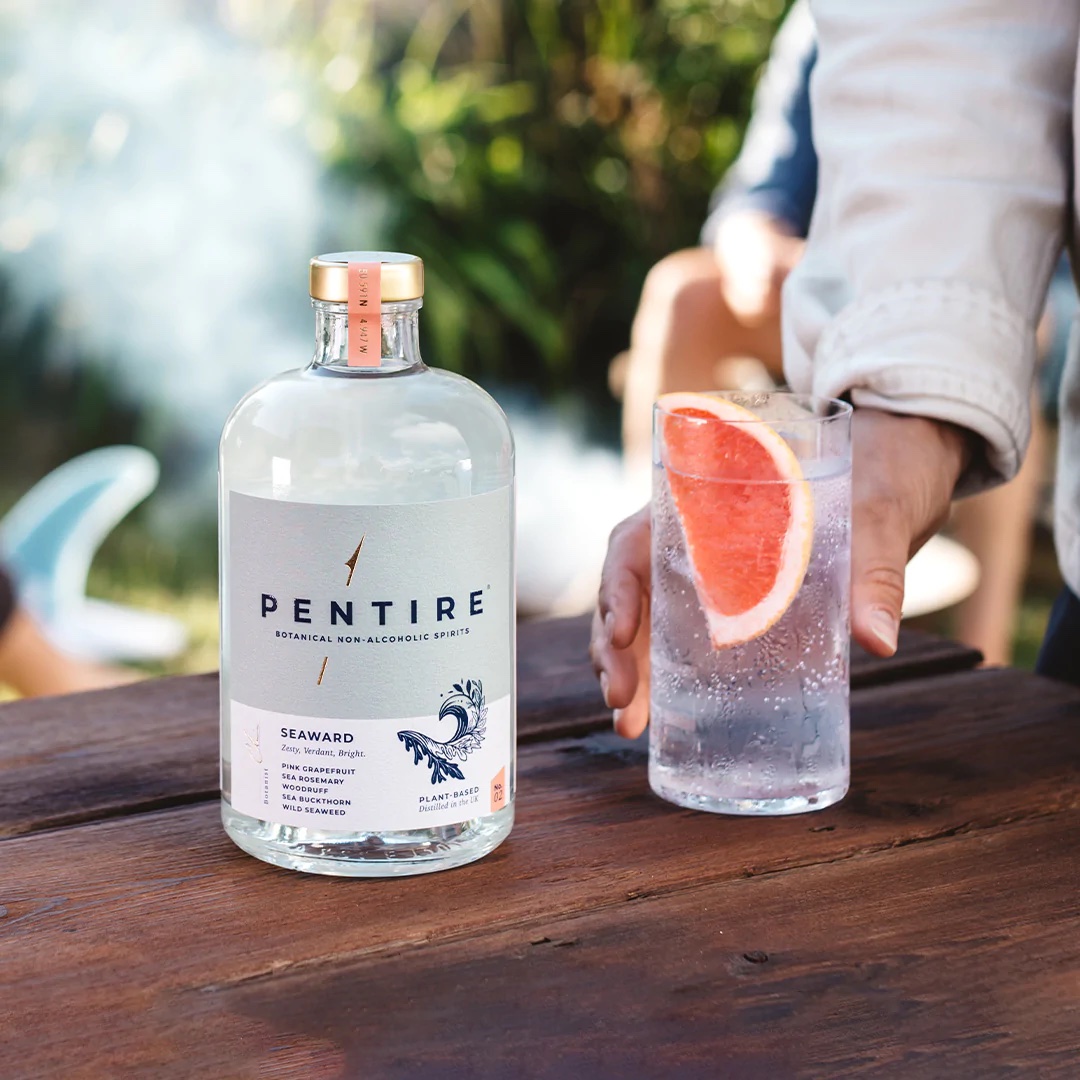 Seven of the best non-alcoholic spirits to help get you through Dry January
Seven of the best non-alcoholic spirits to help get you through Dry JanuaryWhether you’re doing it for health reasons or simply for a New Year’s challenge, giving up alcohol isn’t necessarily all that easy. To help you on your way, the Country Life office put a variety of non-alcoholic spirits to the test. Here’s what we found.
By Rosie Paterson
-
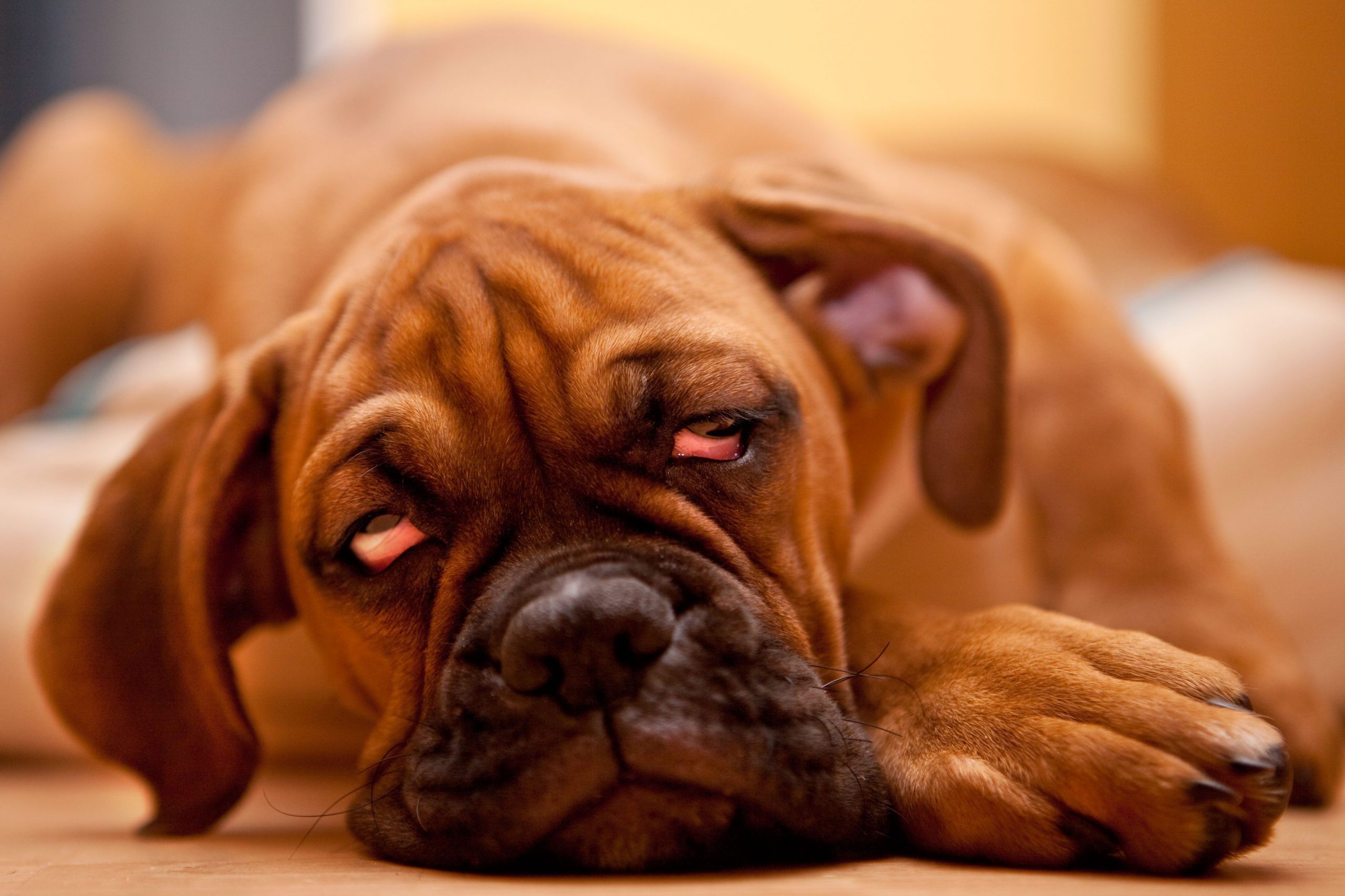 Hangover cures from some of Britain's greatest writers
Hangover cures from some of Britain's greatest writersFrom Hemingway to Wodehouse, we reveal the hangover remedies of literary greats.
By Emma Hughes
-
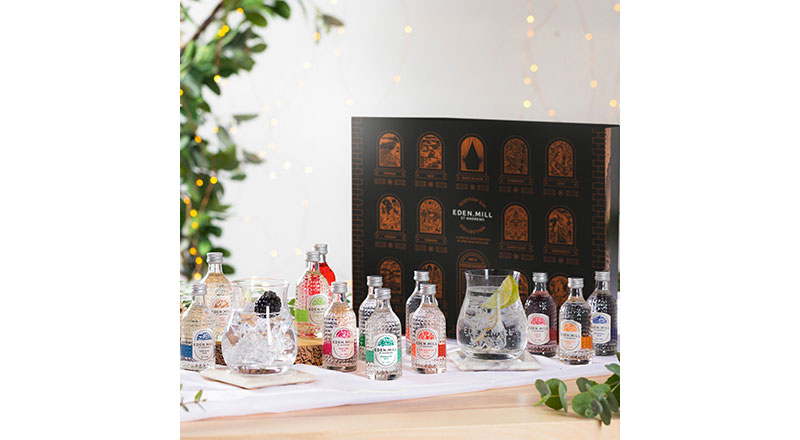 Christmas drinks gift guide: Best gin, best whisky, beer and more for the festive season
Christmas drinks gift guide: Best gin, best whisky, beer and more for the festive seasonWhether you're keen to pour your own draft beer, drink Cotswolds whisky or enjoy a raft of different gins, we've got you covered.
By Toby Keel
-
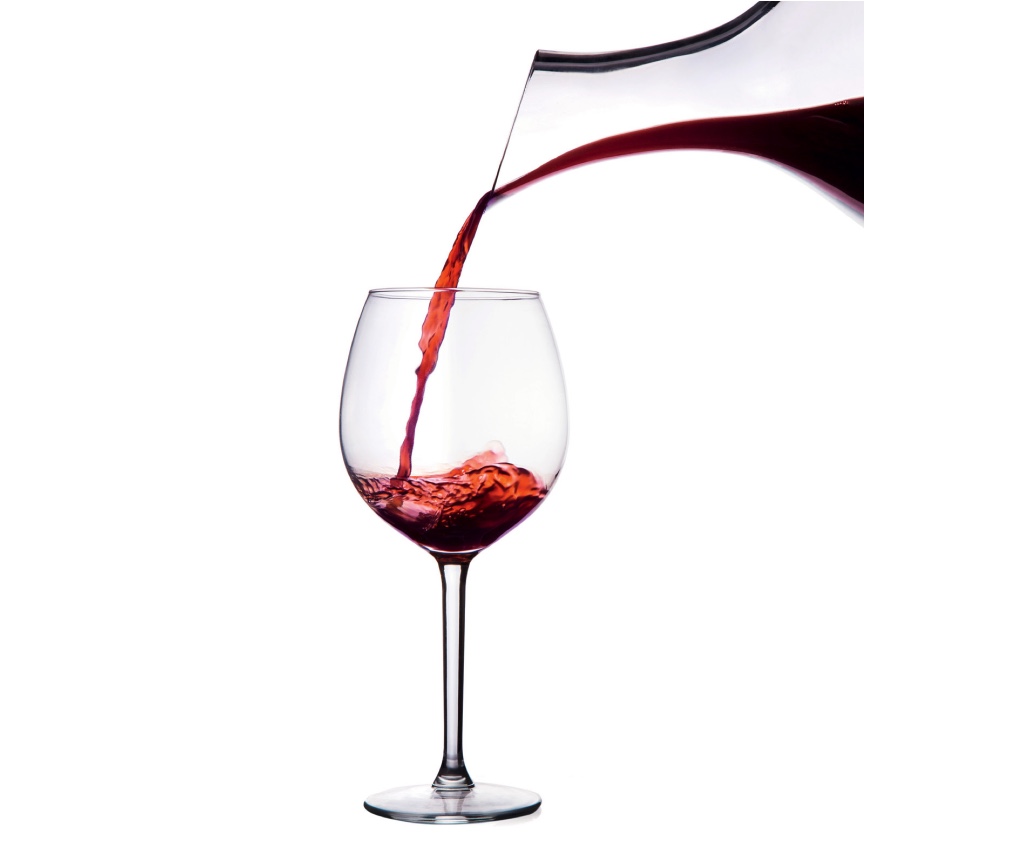 How to decant wine — and why
How to decant wine — and whyIs your decanter gathering dust at the back of a cupboard? If so, says Harry Eyres, it’s high time you started using it to breathe more life into your wine.
By Harry Eyres
-
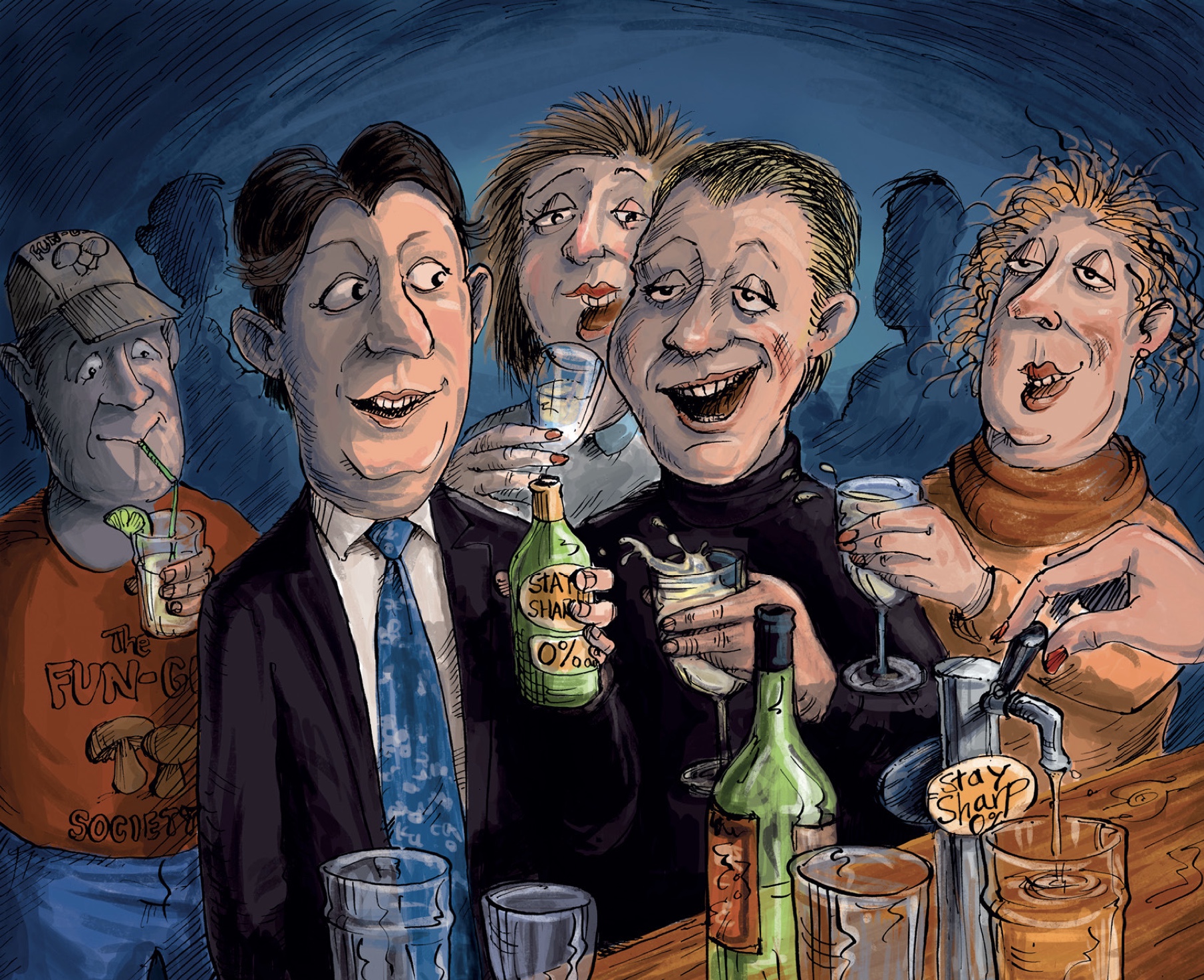 Curious Questions: What is it REALLY like giving up alcohol for a lifelong lover of fine wine?
Curious Questions: What is it REALLY like giving up alcohol for a lifelong lover of fine wine?Sobriety is easier and more interesting than it used to be, finds Giles Kime, who has spent the past year exploring the unanticipated delights of alcohol-free beer.
By Giles Kime